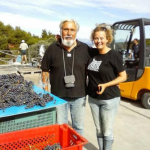November 28, 2018 — A new “Maritime Good” and Seaports Act will finally answer a long-burning question: can “private” Croatian beaches exist?
The law hopes to ambiguities faced by concessionaires abutting coastal land while also opening the door for ecologically-sound investment, according to Ministry of Maritime Affairs, Transportation and Infrastructure State Secretary Maja Markovčić Kostelac.
The legislation was presented at the Croatian Chamber of Commerce’s Tourism Business Council, writes Morski.hr.
The law has been at the crux of a debate within Croatia sparked by a booming tourism sector seeking greater access and uses for waterfront and coastal properties.
Until now, all land roughly six meters from where the sea touches the shore was considered “pomorsko dobro”, a phrase which literally translates to “maritime good.” It claims anywhere the sea touches land is part of a broader commons, with open and equal access to all and protected from private ownership or business interests.
The ephemeral concept, loosely-defined and difficult to implement, creates a de facto buffer between the sea and all business and private property, limiting claims any entity can make to having direct and personal access to the beach.
Locals of a certain age casually explain the law as a holdover from a bygone era when many seafaring Dalmatians needed open and limitless access to the coast in case of sudden squalls or engine troubles which quite literally threatened lives.
Those days of taking to the sea en masse for fishing and small-scale commerce are over, yet “pomorsko dobro” remains. It effectively eliminates the concept of “beachfront property” and “privately-owned beaches”, both of which are still rejected by a sizable swath of local residents.
Foreign investors and land owners with a front-row view of the sea have grown frustrated by their limited legal domain over what happens with the sliver of land between their property and the sea.
The law presented by the government ostensibly seeks a middle ground, giving investors some leeway and the ability to take out concessions on coastal property, all while retaining the character and ecological safety of Dalmatia.
The Ministry claims the law will open a “new investment cycle in tourism.”
Its chief concern is defining and delineating, finally, what is the “Maritime Good”, within the next three years. The law leaves the final delineation up to local governments, with some oversight at the state level.
“At present the law in some segments does not respect the situation on the ground,” said Deputy Prime Minister for Agriculture and Tourism Dragan Kovačević. “And when it comes to concession, there’s is a legal mess because it does not comply with the Concession Law.”
The law on “Maritime Good” will open up the coastal buffer zone to economic uses via two mechanisms: concessions and permits, which will be determined by zoning and inevitable local bureaucratic wrangling.
The doling-out of concessions itself has also been criticized by local activists, who claim a lack of transparency and potential conflicts of interest taint many of the contracts signed at the local level. Some worry the lackluster controls on concessions combined with greater access to beaches will lead to a wholesale usurpation of coastal lands traditionally considered free and open to all Croatians.
The question of preferential access to beach concessions inevitably emerged during the presentation at the Chamber of Commerce, according to Morski.hr. Representatives from tourism sectors directly affected by lackluster domain over beaches (read: camp owners and hoteliers) suggested a sort of preferential access to concessions directly in front of their property, as well as preferential renewals for concessionaires in good standing.
Reports released earlier this year seem to indicate the government is already ahead of them, granting concessions to adjacent waterfront property connected to hotels or camp sites without a public bidding process.
The current law on concessions gives equal access to all applicants when a concession runs out and goes up for renewal.
“The Island Movement”, an activist group seeking better conditions and representation for Croatia’s islanders, has been calling for more transparency in the concession-giving process, as well as adding representatives acting on behalf of the residents to the bodies tasked with giving out concessions.
It most recently called into question a whole battery of concessions given out by the Municipality of Šolta, eventually leading the Ministry of Maritime Affairs to reportedly cancel all concession agreements.
Check out more on our dedicated business page.









